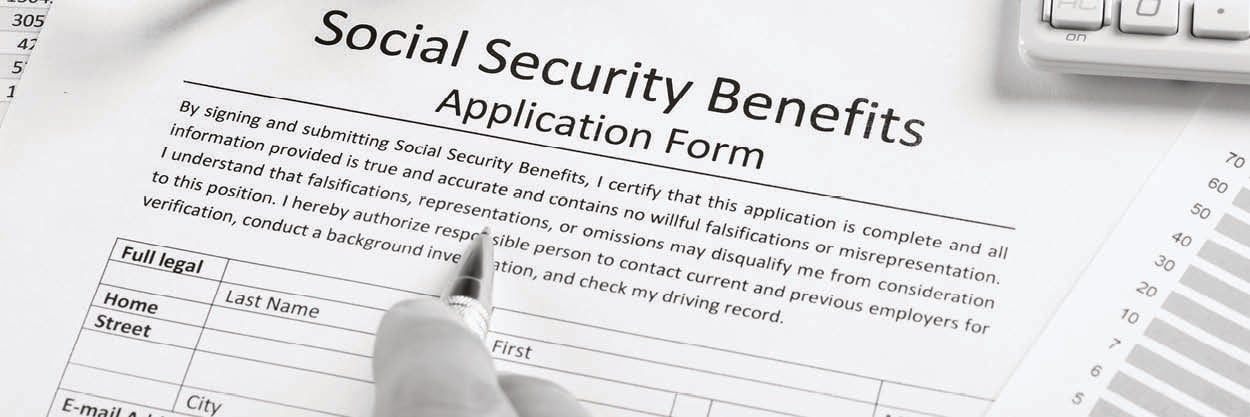With millions of American workers paying Social Security taxes each year, most expect to receive their benefits when the time comes. However, reports over the years have shown that the number of people receiving the benefits are outpacing those paying into the program.

While the reserve funds may run out, most benefits will continue to be covered by taxpayers’ current contributions. With the potential for program restructuring by Congress, Social Security may be able to continue providing full benefits to recipients. It’s also important to note this isn’t the first time this has happened. The Social Security Administration has previously projected shortfalls and, in 1983, Congress made adjustments to replenish the trust fund reserves.
What is Social Security?
Social Security consists of two parts. First is Old-Age and Survivors Insurance (OASI), which pays benefits to retirees, their families, and survivors. The second part is Disability Insurance (DI), which pays benefits to disabled workers. For example, if you become disabled and can no longer work, you may be eligible to receive Social Security disability benefits. If you have a family, your spouse and children may also be eligible to receive certain types of benefits based on your earnings record, including survivor benefits.
What are the financial challenges?
The fiscal challenges that Social Security faces are due in part to shifts in demographics. Social Security is a pay-as-you-go system. Taxes are collected from most workers via payroll deduction, or via self-employment tax for those who are self-employed. These funds are then used to pay today's Social Security benefits. Over the coming years, there will be fewer workers paying Social Security taxes and trust fund reserves will need to be used to make up the shortfall in payroll tax revenue.
Based on estimates in the 2023 Annual Reports of the Social Security and Medicare Boards of Trustees, the OASI Trust Fund will be able to pay 100 percent of total scheduled benefits until 2033, one year earlier than reported in 2022. At that time, it is projected that the fund's reserves will become depleted and continuing program income will be sufficient to pay 77 percent of scheduled benefits.
In addition, the report states if the OASI Trust Fund and the DI Trust Fund projections are added together, the resulting projected fund (designated OASDI) would be able to pay 100 percent of total scheduled benefits until 2034, one year earlier than reported last year. At that time, the fund's reserves are projected to become depleted and continuing total fund income will be sufficient to pay 80 percent of scheduled benefits. The two funds could not actually be combined unless there were a change in the law, but the combined projection of the two funds is frequently used to indicate the overall status of the Social Security program.
However, many proposals to reform Social Security are on the table. With most Americans factoring Social Security into their retirement income, it's likely that action will be taken.
When should you apply for Social Security?
If you’re nearing retirement, you may be considering applying for Social Security as soon as you are eligible (age 62 for most people) to lock in your benefit. However, in the long run, that may not be the best course of action—claiming your benefits before full retirement age can result in a smaller monthly payment for the rest of your life. To raise your anticipated retirement income, it’s best to wait until full retirement age or later.
Keep in mind that Social Security was never meant to be the only source of income for people in retirement. If you haven’t already, consider putting money aside in a tax-advantaged qualified retirement account, such a 401(k) plan, if your employer offers one. An IRA or Roth IRA in addition to other retirement savings can help provide additional income during your retirement.
You can find out more about potential benefits by checking your Social Security Statement. To access your statement, sign up for a Social Security account at the Social Security Administration's website, ssa.gov. Your statement contains a detailed record of your earnings, as well as estimates of retirement, survivor and disability benefits. If you're not registered for an online account and are not yet receiving benefits, you'll receive a statement in the mail three months before you turn 60.
You should save for retirement on your own and start as soon as possible—even if retirement is many years away. The experienced professionals at Busey Wealth Management can help you develop a solid financial plan—whether you’re looking at retirement in the near future or years down the road. To learn more about our comprehensive services, visit busey.com/wealth-management.
1 Social Security Administration, 2023 Social Security and Medicare Boards of Trustees Reports
This is not intended to provide legal, tax or accounting advice. Any statement contained in this communication concerning U.S. tax matters is not intended or written to be used, and cannot be used, for the purpose of avoiding penalties imposed on the relevant taxpayer. Clients should obtain their own independent tax advice based on their particular circumstances.
This material is provided for educational purposes only and should not be construed as investment advice or an offer or solicitation to buy or sell securities.
This presentation is for general information purposes only. It does not take into account the particular investment objectives, restrictions, tax and financial situation or other needs of any specific client.
Not FDIC INSURED | May lose value | No bank guarantee



